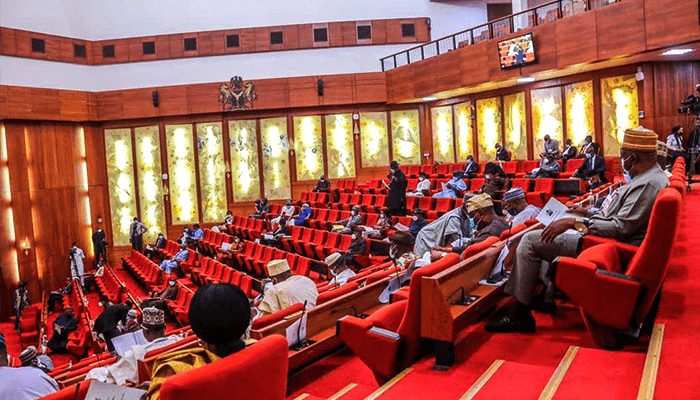The Nigerian Senate has raised alarm over a deepening financial crisis in the country’s electricity sector, revealing that the Federal Government’s debt to power generation companies has surged by ₦800 billion in 2025 alone.
Chairman of the Senate Committee on Power, Senator Enyinnaya Abaribe, made this known during a media chat at a retreat organised by the Nigerian Electricity Regulatory Commission (NERC) in Ikot-Ekpene, Akwa Ibom State, over the weekend. The event was convened to explore sustainable solutions to the ongoing challenges plaguing Nigeria’s power sector.
According to Senator Abaribe, the federal government currently owes an estimated ₦200 billion monthly due to tariff shortfalls. He disclosed that no payments have been made to power producers so far this year, compounding the sector’s longstanding financial burden.
“There’s a serious liquidity crunch affecting the power sector,” Abaribe stated. “Generation companies are owed enormous sums, and the distribution companies are not faring any better. The government has already accrued ₦800 billion in debt this year alone, on top of an outstanding ₦3 trillion from previous years.”
He warned that this growing debt has implications for the entire electricity value chain, including gas suppliers who power the generating stations. “Gas suppliers cannot continue providing gas indefinitely without payment,” he added.

Despite the grim financial picture, Abaribe expressed cautious optimism. He called on both federal and state governments to collaborate and make bold policy decisions, especially now that Nigeria operates a multi-tier electricity market.
“We must ask ourselves: Do we subsidise fuel for mobility, or do we focus on subsidising electricity that fuels homes, businesses, and industries?” he posed.
Minister of Power, Adebayo Adelabu, also addressed the forum, highlighting progress made under the current administration, particularly in boosting power generation. However, he acknowledged that funding constraints and widespread vandalism of infrastructure remain major obstacles.
“Only in Nigeria do we witness the scale of sabotage seen in our energy infrastructure,” the minister noted.
Adding a state-level perspective, Akwa Ibom State Governor Umo Eno—represented by Deputy Governor Senator Akon Eyakenyi—stressed the role of consistent electricity supply in empowering small and medium-sized enterprises (SMEs), which he described as vital to economic growth.
Participants at the retreat expressed hope that collaborative efforts and expert contributions would pave the way for meaningful reforms to stabilize the power sector and restore investor confidence.



